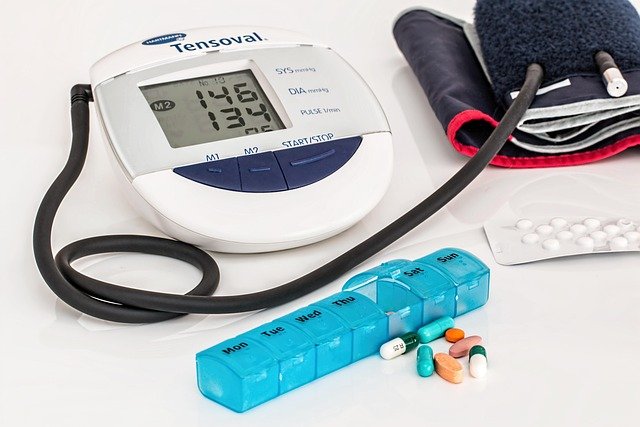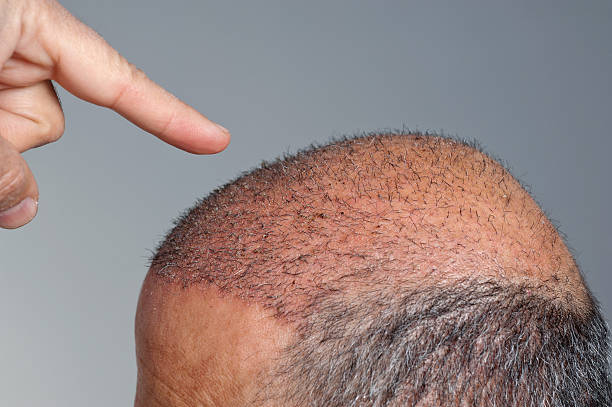Understanding the Hidden Triggers Behind High Blood Pressure
High blood pressure, also known as hypertension, is a common health concern affecting millions of people worldwide. While many are aware of its existence, the underlying causes often remain a mystery. This article delves into the hidden triggers of high blood pressure, helping you uncover the most common causes and empowering you to take control of your cardiovascular health.

What are the primary risk factors for developing hypertension?
Age, family history, and race are among the primary risk factors for developing hypertension. As we grow older, our blood vessels naturally become less flexible, increasing the risk of high blood pressure. Genetic predisposition plays a significant role, with individuals having a family history of hypertension being more likely to develop the condition. Additionally, certain racial groups, such as African Americans, have a higher prevalence of hypertension compared to other ethnicities.
How does lifestyle contribute to high blood pressure?
Lifestyle choices significantly impact blood pressure levels. A diet high in sodium and low in potassium can lead to fluid retention and increased blood volume, putting extra strain on the heart and blood vessels. Lack of physical activity contributes to weight gain and reduces the heart’s efficiency, potentially leading to hypertension. Excessive alcohol consumption and smoking also damage blood vessels and increase blood pressure over time.
What role does stress play in triggering hypertension?
Chronic stress is a often-overlooked contributor to high blood pressure. When stressed, the body releases hormones like cortisol and adrenaline, which temporarily raise blood pressure. Prolonged exposure to stress can lead to consistently elevated blood pressure levels. Additionally, stress may lead to unhealthy coping mechanisms such as overeating, excessive alcohol consumption, or smoking, further exacerbating the risk of hypertension.
Can underlying medical conditions cause high blood pressure?
Several medical conditions can lead to or worsen hypertension. Chronic kidney disease affects the body’s ability to regulate fluid and electrolyte balance, potentially causing high blood pressure. Thyroid disorders, particularly hyperthyroidism, can increase heart rate and blood pressure. Sleep apnea, a condition characterized by interrupted breathing during sleep, is strongly associated with hypertension due to the repeated drops in blood oxygen levels.
Are there any surprising or lesser-known triggers of hypertension?
In the United States, some lesser-known triggers of hypertension include environmental factors and certain medications. Air pollution, particularly long-term exposure to fine particulate matter, has been linked to an increased risk of hypertension. Some over-the-counter pain relievers, such as nonsteroidal anti-inflammatory drugs (NSAIDs), can cause water retention and increase blood pressure. Additionally, certain herbal supplements and energy drinks containing high levels of caffeine may contribute to elevated blood pressure levels.
What are the most effective treatments for managing hypertension?
Treatment for hypertension typically involves a combination of lifestyle changes and medication. Lifestyle modifications include adopting a heart-healthy diet, regular exercise, stress management techniques, and limiting alcohol consumption. When lifestyle changes alone are insufficient, healthcare providers may prescribe medications such as ACE inhibitors, beta-blockers, or diuretics to help lower blood pressure.
| Treatment Approach | Description | Potential Benefits |
|---|---|---|
| DASH Diet | A diet rich in fruits, vegetables, and low-fat dairy | Can lower blood pressure by up to 11 mm Hg |
| Regular Exercise | At least 150 minutes of moderate aerobic activity per week | May reduce blood pressure by 5-8 mm Hg |
| Stress Reduction | Techniques like meditation, yoga, or deep breathing | Can help lower blood pressure and improve overall well-being |
| Medication | Various classes of antihypertensive drugs | Can effectively lower blood pressure when lifestyle changes are not enough |
Prices, rates, or cost estimates mentioned in this article are based on the latest available information but may change over time. Independent research is advised before making financial decisions.
In conclusion, understanding the hidden triggers behind high blood pressure is crucial for effective prevention and management. By recognizing the various factors that contribute to hypertension, including lifestyle choices, stress, underlying medical conditions, and lesser-known environmental influences, individuals can take proactive steps to maintain healthy blood pressure levels. Combining this knowledge with appropriate lifestyle modifications and medical treatment when necessary can significantly reduce the risk of complications associated with hypertension and improve overall cardiovascular health.
This article is for informational purposes only and should not be considered medical advice. Please consult a qualified healthcare professional for personalized guidance and treatment.




